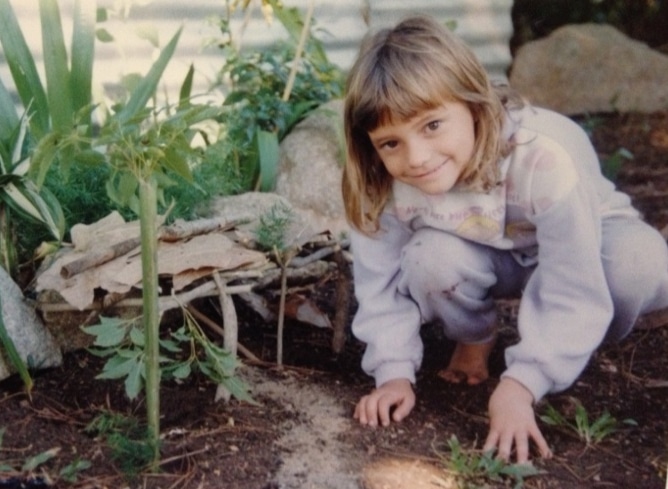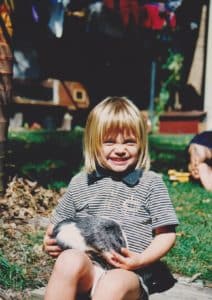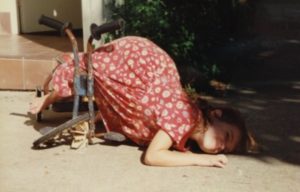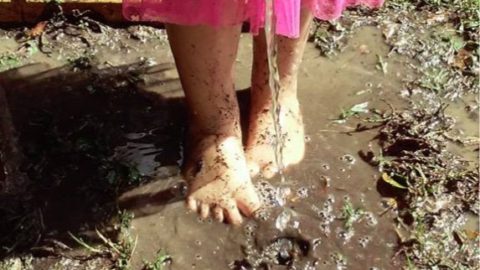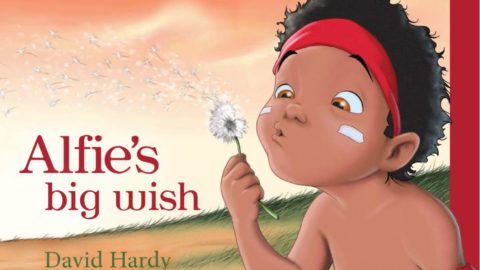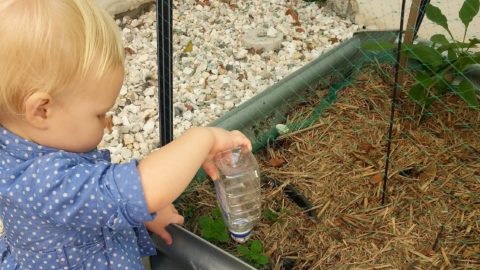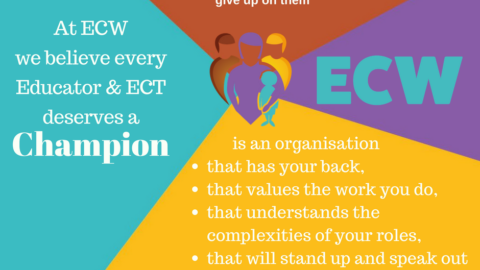The rise of a scheduled childhood and the importance of pottering about
Most of my family are based in Queensland, and I was lucky to be brought up in a spacious, cosy home, with a giant back yard. My childhood memories are of playing with the dogs, rotating the numerous guinea pig hutches around the yard so they got lots of juicy grass, checking the chook coop for eggs, making various messes with paint or mud and pulling bindies out of the soles of my feet.
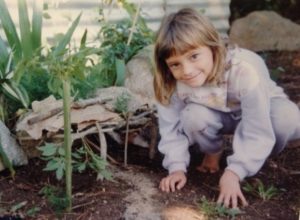
I would argue that whilst some activities may be unimportant, a lot of what happens when one potters about, actually becomes important over time. Think of the gardener who starts as an amateur without a green thumb; the more they potter about in the garden, the more they build their garden and their skills.
As I get older, I learn more about my childhood and what this means for my development as an adult. There are so many things I understand about myself, and my family, that pop up each time I go back home for a visit. As these become more apparent, I understand on a deeper level, what my values and beliefs are and truly, where these came from. In turn, I reflect on what this means for me as a teacher.
Recently I’ve seen a lot of information from early childhood education and care services regarding “extracurricular activities”. Some services advertise or state that there is one extracurricular activity per week, some have several. While another service advertisement, mentioned that they had one extracurricular activity each day. These kinds of activities include things such as ballet lessons, French/Mandarin/Italian lessons, swim lessons, cooking lessons, music lessons, art lessons, numeracy and language lessons, etc. What is offered varies and sometimes these are built into fees, while other times they are an additional cost to families.
Whilst it is fabulous for children to be exposed to a range of learning opportunities, I find myself struggling to understand what this means in terms of a child’s “childhood”. I think about children being ushered into lessons where they are instructed, observed and coached. I become concerned that from a very young age, children’s lives are over-scheduled. And I feel conflicted as an advocate for play, children’s rights and children’s freedoms.
As an adult, I value space and freedom. Creativity isn’t just an outlet for me, it is a need. In my childhood I was given the space, the time and the freedom to potter about. It’s something that I feel is part of my family culture. My parents, myself and my five other siblings have unique hobbies, and at the crux of it, the need to make and create things. We are a family of ‘potter-ers’. We potter about! We tinker and we build, we deconstruct and we reconstruct, we paint, we use clay and some of us knit. We are not exactly artists, but we are artistic. As an adult, Being in nature doesn’t just make me feel overwhelming awe and love for our world, but it soothes my soul as I remember all the rainforest treks my father took me on with my siblings, the tadpoles we would watch and the trees so large, my neck would hurt from trying to see the tops. The sounds of the birds inspired my imagination to create what I thought the bird would look like, and I would spend ages trying to spot them in the trees. To this day when I am overwhelmed, two minutes listening to bird calls or rubbing my hands and feet across grass calms me down.
In my early ECEC career, I didn’t connect the dots of what this all meant. Ten years down the track, I find myself wishing that more children these days, could have experiences like those. I feel concerned that while us adults mean well by offering extracurricular activities to children, that this further restricts the way children learn, and what really matters to them (and for them).
“I feel concerned that while us adults mean well by offering extracurricular activities to children, that this further restricts the way children learn, and what really matters to them (and for them)”.
If we step back and provide children with tools and time to potter about, and let them try and try again, we will watch incredible development take place. Children will experience:
• True decision making
• Problem solving
• Creativity
• Design
• Architecture
• Challenges of creating “what’s inside your head”
• Reflective processes as they come back and revise and tweak projects
• Sensory exploration
• Mind, body and emotional regulation
• Persistence (the beginning of grit)
• Physical and mental strength development
• Solitude or collaboration
• The ability to create their own work
• And so much more!
As children increasingly are brought up in units without the backyard space I, personally, was lucky to have, I have some encouragements for all the educators and teachers out there. We understand the provisions for children these days are different, it’s the context of the times, so please know that I am not attempting to criticise what parents already try their hardest to do; raise happy, healthy children, rather, I’d like us to reflect on our ECEC spaces and agendas. I do believe the rise of extracurricular activities for such a young age group is tied to a combination of academic push down, modern day living structures of families, as a substitute for nature play and stemming from restrictions of playing unsupervised or (with little supervision) due to modern safety concerns.
There’s a large understanding and acceptance that high rise living and limited time outdoors are some of the current conditions for modern day families, but ECEC has an ace up our sleeve that we can use to support families and children. We can use our service spaces to provide children with time and space for pottering about. Perhaps it might mean adding a shelf to the sandpit with non-traditional tools or toys to see what children do. Maybe you have educators or teachers who can teach children skills such as using clay, knitting or pressing flowers by inviting them in to watch and try at their own pace. It could mean finding resources that are open ended, and putting them in places where children will spot them, collect them, begin to use them. Then, giving children time to try and try again, and watching as they revise and further develop their own skills through play.
Think about your own childhood. Did you potter about? What kind of things did you make, create or come up with? How did you do this? What kinds of things stopped you, if anything did?
For me, I see it as a duty to provide children with time to build positive childhood memories. It’s why I don’t hesitate to take them down the road to the creek, or walk them to the post box to post some letters, or why I don’t mind that they don’t want me to play with them all the time. When I see children in these moments, I see myself. For me, that is childhood. It is being.
This is why I am so uncomfortable with extracurricular activities and the over-scheduling of modern day children’s lives. They have the rest of their lives to be busy.
Their childhood is right now.
Authored By Loretta Davis.
Early Childhood Teacher and Manager.
I’ve worked in early education for 10 years now. I began with my certificate III, then moved to completing my diploma and have recently completed my Bachelor of Early Education (0-5 years). My studies have greatly influenced not only my knowledge, but my practices. I’ve worked in a variety of services, community run, for profit, big and small. I’ve been an assistant, a room leader and am now part of management with my current company, working with three services. My current role has extended my skills and and challenged me to develop my abilities as a mentor, educator, colleague and researcher.
A few years ago I found a big passion within myself for children’s rights, which stemmed from what I was learning in my studies. A big focus of mine is adapting and reflecting upon our practices to consider the effects on children’s rights and the UNCRC. I feel that Australia has so much capacity to help children achieve outcomes and have access to quality education, and that our educators can help strive to achieve this. With motivation and support from educators I’ve met and worked with, my passion continues to grow and I’m excited to be a part of a collective looking to enhance our practitioners knowledge and abilities through information and advocacy.

